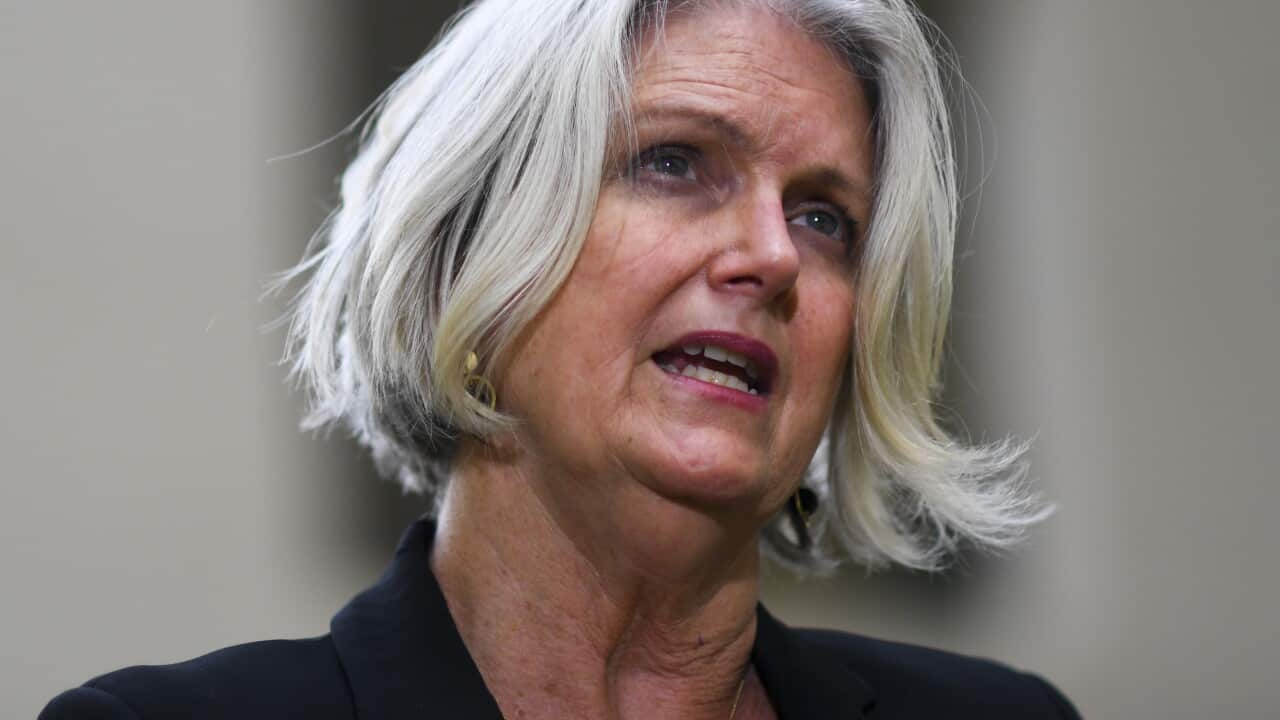Insight hosts a frank and honest discussion with those experiencing housing stress. Watch Tuesday, March 14 from 8:30pm on SBS or .
Stream free On Demand

Housing Stress
episode • Insight • Current Affairs • 51m
episode • Insight • Current Affairs • 51m
A campground on the NSW South Coast has closed to visitors, its grounds stuffed full of locals in tents, caravans or cars who can't afford a home.
Until recently, Bruce Cox was one of them.
“[I] only had a cold shower and a public toilet block and I cooked on a campfire every night. All before I went to work," he told Insight.
“At that time, when I was living in the campground, there were multiple groups of people — families, single people, single parents."
The former restaurant manager lived in a tent for six months after local rents for a three-bedroom property ideal for him and his two children skyrocketed from around $300 per week before the Black Summer bushfires in late 2019 to around $700.
“That’s 60 per cent of my take-home wages," Bruce said.
“We’re at breaking point.”
More than 50 people are now living in the North Head campground in Moruya near Batemans Bay, with the accommodation crisis mirrored across the NSW South Coast.

Bruce Cox said the campground he stayed in for six months was full of locals who couldn't afford the soaring rents seen across the NSW South Coast. Source: Supplied
In the Eurobodalla Shire, house prices have increased by 82 per cent while rents have climbed by almost 50 per cent over the five years to December 2022, according to data from Domain.
The situation is having severe impacts on tourism and healthcare, with many of those who keep the sectors afloat struggling to find housing.
Cafes, hospitals and schools without staff
Katungul Aboriginal Health Service treats up to 8,000 patients along the far South Coast of NSW and requires about 150 staff.
“We're probably running at 120 at the moment,” Katungul CEO Kayeleen Brown told Insight.

Katungul CEO Kayeleen Brown says that her regional health center is losing doctors as they are unable to find rental accommodation in the regional areas.
The medical service has had to fly doctors and nurses in from Canberra and Sydney, but this is an expensive solution, given this region is also an idyllic holiday destination.
“If we have to put a clinician up for the night, the hotel is at top rate because we’re near the beach. Compared to western NSW where a hotel might be 80 bucks for the night, we pay anywhere from $250-$400 a night.”
Mayor of Eurobodalla Shire Mathew Hatcher says the impacts of the housing crisis are far-reaching.
“We can't get staff for local cafes or tourism businesses. We can't get staff for the hospitals. We can't get teachers for the local schools.”
“We're currently 75 positions short at our local council.”
Remote workers from cities compounding the problem
What's happening on the NSW South Coast is being reflected across regional Australia, says Hal Pawson, professor of housing policy and social research at UNSW.
“Homelessness numbers over the last few years have been growing much faster in regional Australia in general than in the major cities,” Professor Pawson told SBS Insight host Kumi Taguchi.
Regional house prices have increased by almost 40 per cent since March 2020, twice as much as in capital cities, according to data from Core Logic. During the same period, the population of regional Australia has also grown, ABS data shows.
Professor Pawson says the remote working trend has put pressure on regional communities.
“There are tens of thousands of people who've got a wider choice of where they could live,” he said. “These are people who've got the ability to spend more on their housing in a regional context, where most incomes are much lower.
Homelessness numbers over the last few years have been growing much faster in regional Australia in general than in the major citiesProfessor Hal Pawson
“It does disrupt the situation in places like that, and is liable to be pushing the cost of housing further out of reach for people who are the established population.”
Bruce has recently found a rental property.
But the experience has left him disillusioned with the “Great Australian Dream".
“I feel totally let down by the system. Australia is one of the most affluent countries in the world, where we all work hard [and] unemployment is low," he said.
"The prospects in Australia would be one of the most favourable of any country. But this situation exists, and I don’t understand why.”












